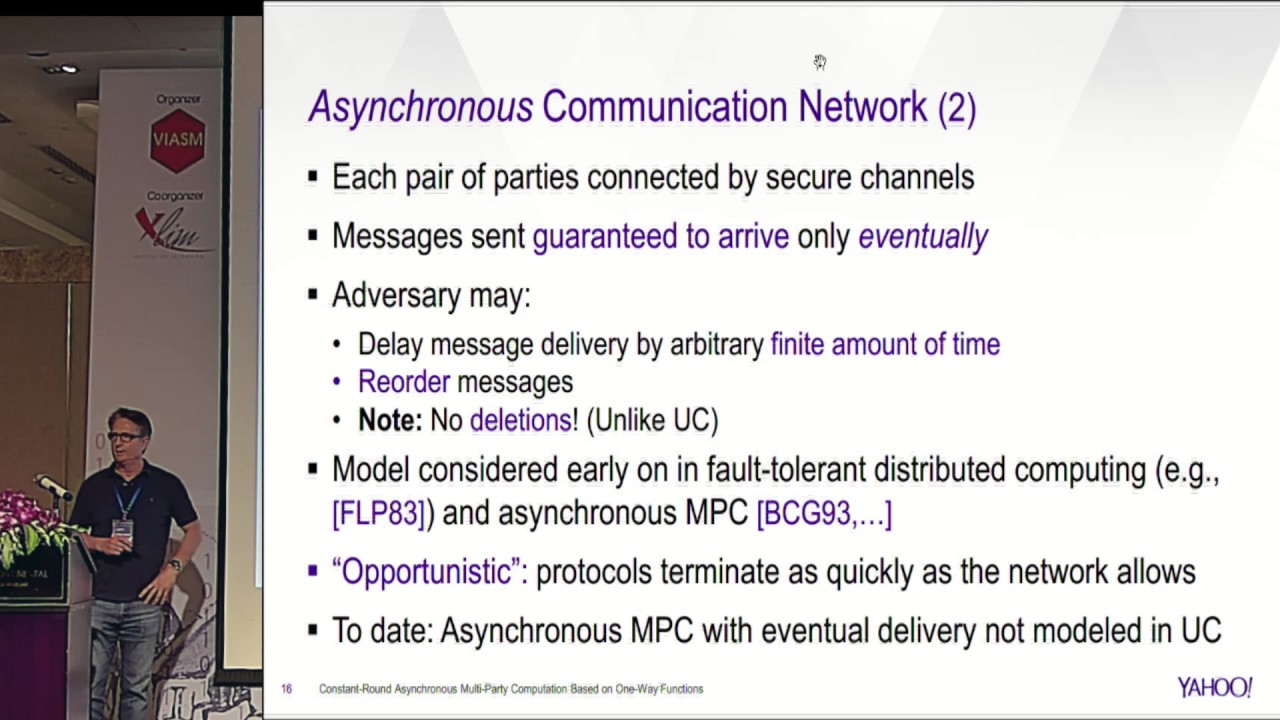Welcome to the resource topic for 2016/208
Title:
Constant-Round Asynchronous Multi-Party Computation Based on One-Way Functions
Authors: Sandro Coretti, Juan Garay, Martin Hirt, Vassilis Zikas
Abstract:Constant-Round Asynchronous Multi-Party Computation Secure multi-party computation (MPC) allows several mutually distrustful parties to securely compute a joint function of their inputs and exists in two main variants: In synchronous MPC parties are connected by a synchronous network with a global clock, and protocols proceed in rounds with strong delivery guarantees, whereas asynchronous MPC protocols can be deployed even in networks that deliver messages in an arbitrary order and impose arbitrary delays on them. The two models—synchronous and asynchronous—have to a large extent developed in parallel with results on both feasibility and asymptotic efficiency improvements in either track. The most notable gap in this parallel development is with respect to round complexity. In particular, although under standard assumptions on a synchronous communication network (availability of secure channels and broadcast), synchronous MPC protocols with (exact) constant rounds have been constructed, to the best of our knowledge, thus far no constant-round asynchronous MPC protocols are known, with the best protocols requiring a number of rounds that is linear in the multiplicative depth of the arithmetic circuit computing the desired function. In this work we close this gap by providing the first constant-round asynchronous MPC protocol. Our protocol is optimally resilient (i.e., it tolerates up to t<n/3 corrupted parties), adaptively secure, and makes black-box use of a pseudo-random function. It works under the standard network assumptions for protocols in the asynchronous MPC setting, namely, a complete network of point-to-point (secure) asynchronous channels with eventual delivery and asynchronous Byzantine agreement (aka consensus). We provide formal definitions of these primitives and a proof of security in the Universal Composability framework.
ePrint: https://eprint.iacr.org/2016/208
Talk: https://www.youtube.com/watch?v=p5-YbqFWNhY
Slides: https://iacr.org/cryptodb/archive/2016/ASIACRYPT/presentation/27906.pdf
See all topics related to this paper.
Feel free to post resources that are related to this paper below.
Example resources include: implementations, explanation materials, talks, slides, links to previous discussions on other websites.
For more information, see the rules for Resource Topics .
